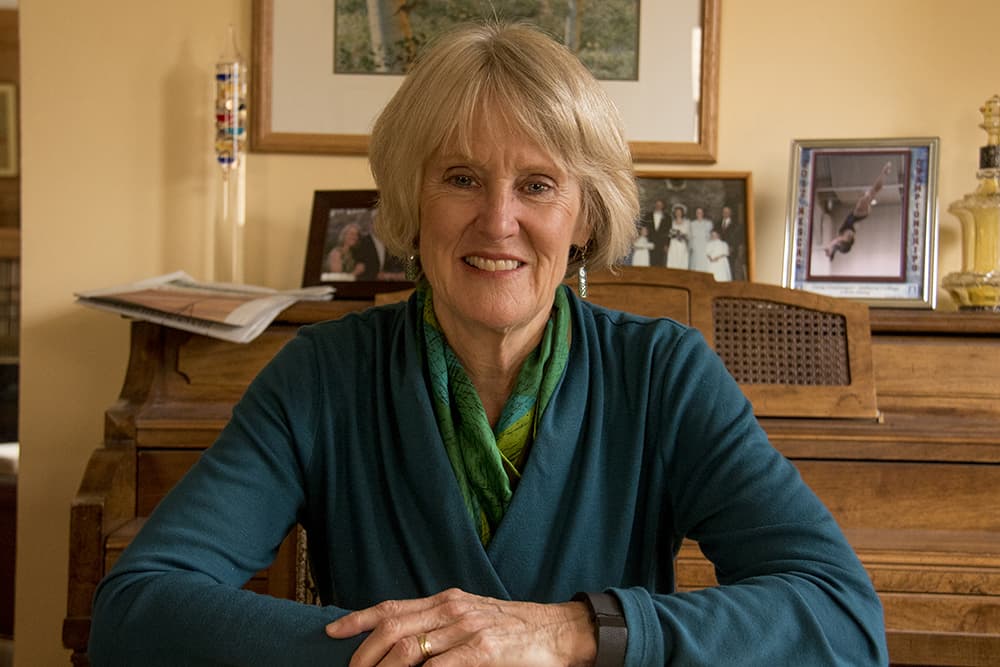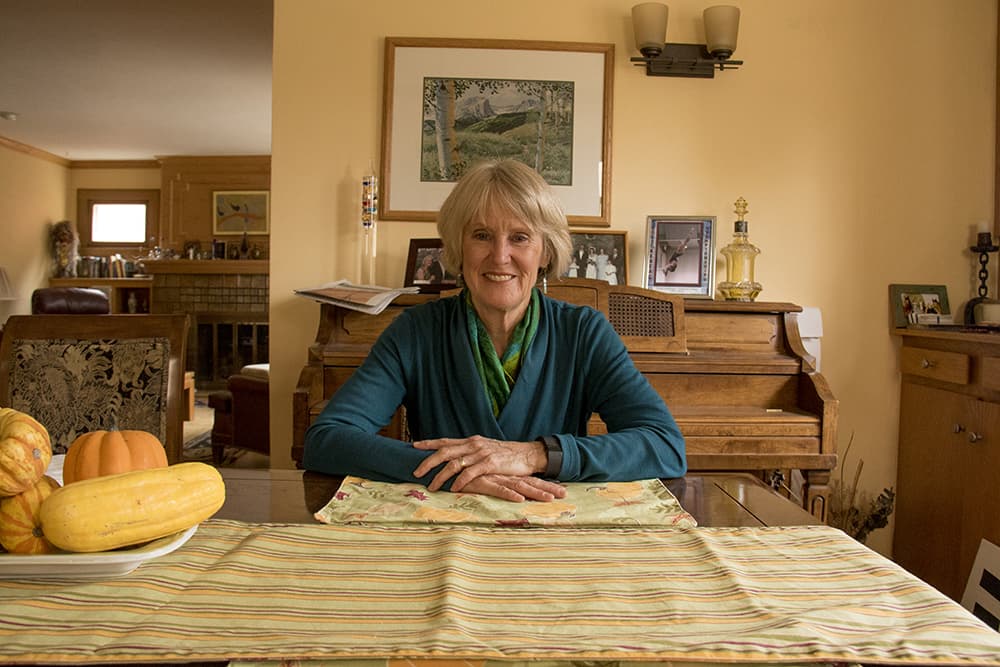
Outgoing state Rep. Beth McCann is Denver's first female district attorney and the first person in decades to take over from outside the Denver District Attorney's Office. A former prosecutor and Denver manager of safety, she won a competitive three-way Democratic primary and fended off a challenge from Chief Deputy District Attorney Helen Morgan, who ran as an independent.
McCann takes office in January. We sat down with her recently to find out what we should expect. This conversation has been lightly edited for length and clarity.
What are your priorities? What changes will we see in the first year?
Right away, we're going to start a restorative justice program in our juvenile department so we have alternatives for kids, so they are given opportunities to really look at their behavior and make some changes in their behavior.
Denver police have started a program called co-responders, where they have mental health workers that are on call and will go with them when there's a mental health issue. There are only six of those people right now. I am committed to expanding that program, working with the city, getting additional funding, looking at how we can work together to divert those people out of the criminal justice system and into treatment.
I'm also going to have citizen advisory councils so I have more presence in the community. I'm going to require my deputy DAs to go to neighborhood meetings so we can hear from the community what they're thinking, what they're interested in, what's going on with crime in their communities, what opportunities they would like us to pursue, so we'll have more community involvement than is currently going on.
Under the current district attorney, Mitch Morrissey, there was a widespread perception that police were not being held accountable. How will that change?
I want to expand the use of the independent monitor's office to look at what the facts show and whether that case is fileable.
If we decide not to file a case, I want to have a public meeting where people can come and we can have a discussion about what the facts were and why we didn't think it was possible to file a criminal case so there is more transparency and there is more opportunity for the public to understand why decisions were made.
That said, if the police do break the law, I will file a case.
The Denver police are doing some really good things to increase the trust with the public and help de-escalate situations, and I want to continue to work with them on those issues. They are redoing their use of force policy, and all of them will be wearing body cameras by the end of the year.
The police union had endorsed your opponent. Are you concerned about having a good working relationship with the police?
I want to have a good relationship with both the union and the command staff. I have met with Chief White and his command staff. We're getting a meeting scheduled with the union. I anticipate having a good working relationship with them as well. We all have the same goal of keeping our city safe and our families safe.
When I've been out in the community, there is a deep distrust right now, particularly among communities of color and a feeling that they do not get justice. I want to work really hard to repair those relationships or establish them. Whatever I can do to foster a good relationship between the police and community, I want to do that.
Is there a case in recent years where Mitch Morrissey decided not to prosecute and you would have?
There was a case, and it was actually a sheriff's department case. A lot of our cases of misconduct have been with the sheriff's department. I was in the courtroom when the judge ruled that the DA should have filed a case, and that was when one of the sheriff's deputies grabbed a guy who was shackled and in handcuffs and threw him up against a window.
One thing I noticed about that case is that I didn't feel the investigation was adequate. The DA's office has the ability to have additional investigation done.
I have reviewed some of the cases. I cannot say now that I would have definitively filed in most of the cases.
Will we see more police prosecutions?
I'm hoping that we're not going to have as many police shootings as we've had. The police department is really taking great steps to train officers and give them more tools to handle situations. That said, the type of work they do is going to result in use of force. I can't say there will be more persecutions. What I can say, is that if they do violate the law, I will hold them accountable.
When you saw that Donald Trump would be the next president of the United Staes, how were you thinking your job might change?
I'm interested working on the prevention end as well as the prosecution end, and we don't know if the new administration is going to change the priorities for grant money. He didn't talk about criminal justice reform at all that I can remember, and he didn't talk much about criminal justice. He did talk about increasing stop and frisk which may be unconstitutional, so we'll have to see.
The other big piece is hate crimes. It's called bias-motivated crime. I will very aggressively prosecute if we have that kind of crime in Denver. I'm hoping things will settle down, and we won't see this sort of intimidation and harassment of people because of their religion or their race or their sexual orientation.
We'll have to see what happens with the whole immigration issue. The mayor has said he won't have the Denver police enforcing federal immigration law. I don't know if that's going to come down to a standoff with new federal administration and the cities.
The DA's office doesn't prosecute immigration violations. We just prosecute the underlying crime. We'll just have to see.
I know Hillary Clinton did talk about criminal justice reform and was interested in looking at how we prosecute lower-level crimes. There was a bill that was going to reduce the mandatory minimums for drug offenses, and it had support from the left and the right, but it didn't pass. So that was disappointing.
Morrissey went to other states to warn them against legalizing marijuana and seemed to think that process has gone poorly here. Do you share those concerns?
It has gone a lot more smoothly than I anticipated. I expected a lot more violent crime because of the cash. I'm more worried about the illegal grow operations and the ability of people from outside to come in and grow and buy and sell illegally and take marijuana out of the state illegally. That's been a focus of the federal government.
Our responsibility in Colorado is to ensure we do the best job we can making it safe and keeping it away from kids. If I find people selling underage, I will prosecute that. But the businesses, we need to help them be successful, because it is in our constitution. That's what our people voted for.
You're against the death penalty. In Arapahoe County, the district attorney has just decided to seek the death penalty in a very sad and disturbing case. For those types of cases, why should the death penalty be off the table?
I don't think the state should be in the business of killing people. These are the most tragic, horrific, awful cases you can even imagine where it would even be considered, but I just have a fundamental belief that we have other ways to punish and to provide for safety. The crimes where it's been brought, I don't think the fact that the death penalty is available, I don't think it serves much of a deterrent value because I don't think the type of people who commit these crimes think about that or would be dissuaded. Also, they take so many resources and so much time and then they don't get resolved for so many years. It's a drain on all our resources.
If we can get a plea to life in prison without the possibility of parole, we address a lot of that agony that victims' families feel when the situation goes on and on for 20 years and costs millions of taxpayer dollars on the defense and prosecution side. When you weigh all those factors, I don't think we should bring the death penalty in Denver.
Also, when you look at the last two death penalty cases in Colorado, the theater shooting and these horrible, horrific murders in the Fero's Bar, it's hard to imagine much worse than that, and we did not get the death penalty returned in those cases.
I just don't think Denver juries support it.
In four years, what should we look for to know if you've done what you said you would do?
We'll hopefully see less crime. I hope they'll be able to see the changes we've made in the juvenile arena. I hope we'll see a much more robust mental health system so that people who are getting into the criminal justice system because of problems with mental health will have much better options. The same for substance abuse. I hope we'll see fewer people in prison and in jail, to tell you the truth. We'll see less people in for minor drug offenses, but we'll see a better use of our bail bond system so people aren't waiting in jail because they can't afford bond.
Hopefully, we would have those communities that feel now that they don't get justice, I would hope that we make an improvement in that relationship and that they have more confidence in the criminal justice system.
I hope that's what they'll see. It's a big job.












